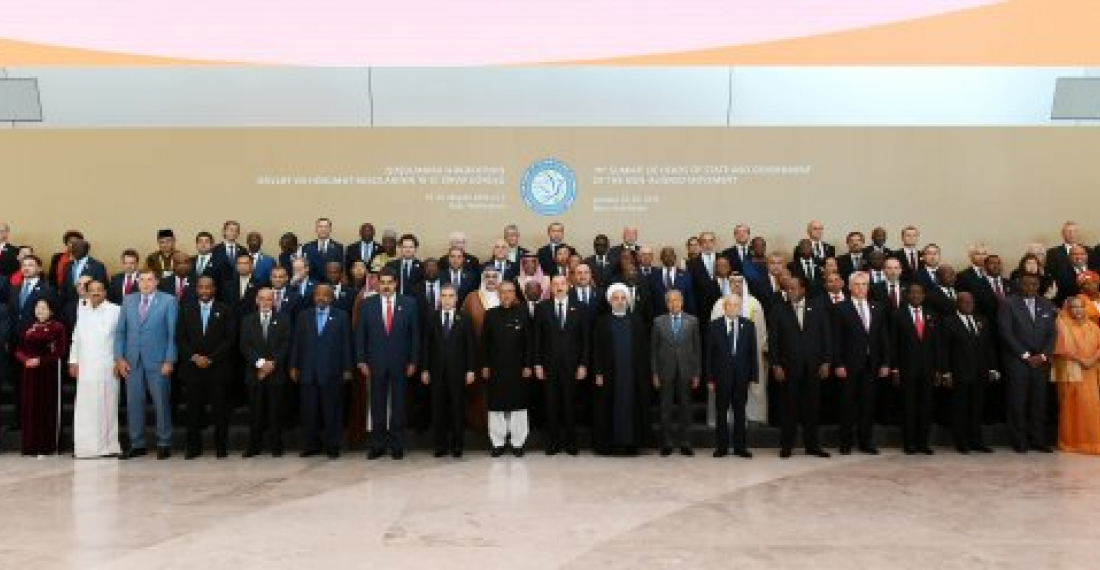The 18th Summit of the Non-Aligned Movement opened in the Azerbaijani capital Baku with the participation of delegations from the Movement's 120 member states and 17 observer countries, many of them headed by their heads of state or government.
The Non-Aligned Movement emerged in the early years of the cold war as a group of countries, most of them from Africa, Asia and Latin America, who were not part of any military bloc. Following a conference in Bandung in 1955, the movement was formally established in 1961, and for many years it became the voice of the developing countries in global political and economic fora.
Azerbaijan is hosting the summit, and has taken over the chairmanship of the Movement for the next three years.
Speaking at an official dinner in honour of the visiting delegations, President Ilham Aliyev said Azerbaijan "will build its priorities on historical Bandung principles. Our goal is to further enhance the role and authority of the Non-Aligned Movement in the system of international relations, together with the participating countries, to contribute to strengthening peace and security on the planet, sustainable development and ensuring justice."
The president added:
The Bandung principles, covering such principles as respect for the sovereignty, territorial integrity of all countries, non-interference in the internal affairs of states, protection of mutual interests and promotion of cooperation, coincide with the foreign policy of Azerbaijan.
I want to express gratitude for the decisions reflected in the documents of the Non-Aligned Movement related to the settlement of the Armenian-Azerbaijani Nagorno-Karabakh conflict and supporting the territorial integrity of Azerbaijan. We greatly appreciate this support.
During the presidency of our country in the Movement, our priority will be the promotion of solidarity and mutual supportive relations between the participating states. We will also try to assist in resolving issues and possible problems between member countries."
The Summit opened on Friday and will continue today, after which a number of declarations and statements are expected to be approved.
source: commonspace.eu
photo: The heads of delegation at the summit of the Non Aligned Movement pose for a family photo in Baku on 25 October 2019.







